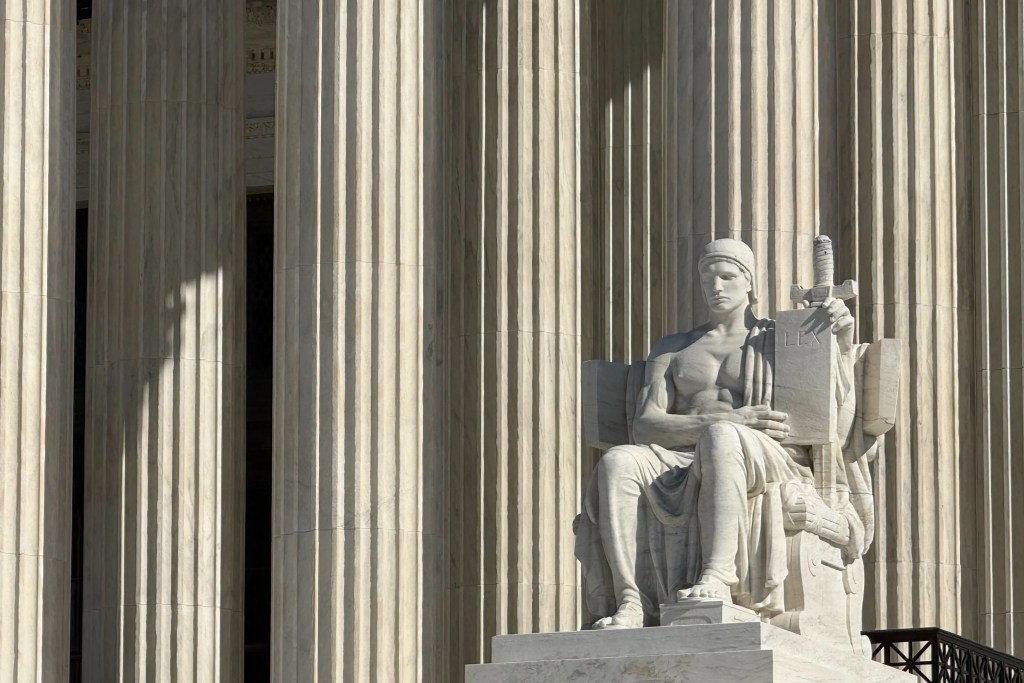United States v. Hemani: an animated explainer
SCOTUSblog is thrilled to introduce the first in a series of animated videos, done in partnership with Briefly, on some of the most important upcoming cases of the 2025-26 term. Today’s video is an introduction to United States v. Hemani, to be argued on Monday, March 2, which asks whether an unlawful user of any controlled substance may be prohibited from possessing a gun under the Second Amendment.
The major debate over major questions in the tariffs decision is only the beginning
Justices appear dubious of challenge to constitutionality of foreclosure sales
Supreme Court to consider whether freight brokers can be held liable for negligent hiring
Court to hear argument on whether and when drug users may possess firearms
SCOTUStoday for Friday, February 27
More news
Supreme Court to consider whether freight brokers can be held liable for negligent hiring
In Montgomery v. Caribe Transport II, to be argued on Wednesday, March 4, the court will consider whether a federal law initially designed to deal with state trucking regulations supersedes state common-law claims holding freight brokers liable for negligently selecting dangerous motor carriers or drivers. That may not sound particularly fascinating, but the issue before the court, which involves the scope of the Federal Aviation Administration Authorization Act of 1994, could have broad liability implications for transportation logistics and the freight broker industry.
Continue ReadingCourt rejects ICE contractor’s right to immediate appeal
The opinion yesterday in The GEO Group v. Menocal rejects the efforts of a contractor for ICE to get an immediate appeal from a district court judgment. The case involves claims by ICE detainees challenging the conditions of their confinement by a contractor operating an ICE detention facility – specifically, the detainees contended that the contractor’s operation of the facility involved forced, unpaid labor, violating various federal and state laws.
The contractor, GEO Group, asked the trial court to dismiss the suit out of hand, arguing that it was simply following ICE’s instructions. When the district court refused, the contractor appealed. It lost again in the appellate court, as that court concluded that this is not the kind of question that justifies an immediate appeal – the contractor, so the court of appeals held, had to wait until after a trial in the district court to bring the case to the appellate court.
Continue ReadingBeach blasts and unusually dangerous weapons
The Relist Watch column examines cert petitions that the Supreme Court has “relisted” for its upcoming conference. A short explanation of relists is available here.
With the rest of the current term’s argument calendar filled, the grants may slow after the frenzy of December and January. On Monday, the Supreme Court added just one case to the merits docket from the relist rolls. Specifically, the court granted review in four-time relist Suncor Energy (U.S.A.) Inc. v. County Commissioners of Boulder County, in which energy companies contend that federal law preempts state-law lawsuits claiming that oil and gas companies have knowingly exacerbated climate change. This case will be very closely watched: it represents just one of numerous such suits by state and local governments, now proceeding overwhelmingly in state courts under state law.
There are just three new relists this week.
Continue ReadingCourt rules criminal defendants may be prohibited from discussing ongoing testimony with counsel during an overnight recess
When a trial court recesses a criminal trial during a defendant’s testimony, the court may order the defendant and his lawyer not to discuss that testimony during the break except when it is incidental to discussions of trial strategy or whether to accept a plea bargain, the Supreme Court ruled on Wednesday. The vote to affirm the lower court judgment in Villarreal v. Texas was unanimous, with Justice Ketanji Brown Jackson writing for the court. Justices Clarence Thomas and Neil Gorsuch did not join the court’s opinion.
Continue ReadingHow can the Supreme Court protect electoral integrity?
Justice, Democracy, and Law is a recurring series by Edward B. Foley that focuses on election law and the relationship of law and democracy.
The court has already confronted cases concerning the midterms, like the efforts to re-gerrymander already gerrymandered congressional districts for even more partisan advantage. And undoubtedly, the court will face many more issues before ballots are cast in the upcoming fall.
But there is one specific possibility that I want to consider now because it’s especially crucial that the court be prepared to act proactively, so as to avoid electoral subversion that can’t be remedied after it has occurred.
Continue Reading